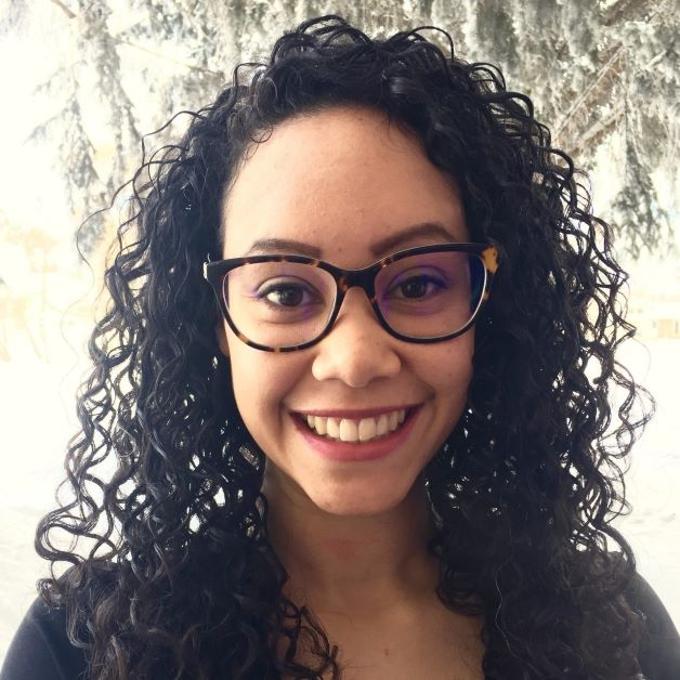Music - Conducting (MMus)
Unleash your inner maestro.
The Master of Music in Conducting is an opportunity for students to pursue intensive one-on-one study under the mentorship of experienced performers and scholars. This program deepens and develops breadth of knowledge (repertoire, pedagogy) and applied skills (score analysis, technique, and rehearsal practice).
The Master of Music in Conducting provides the necessary training for musicians to move into professional work in artistic and academic contexts. Students can specialize in choral or wind band conducting.
The graduate program in conducting prepares graduates for an academic setting, including courses in music history, bibliography, research methods, and music theory, as well as ensembles and practical study. Graduates may choose to pursue a doctoral program in a related field in order to teach at a university level.
This program is for those who are interested in enhancing their conducting skills, including high school music teachers seeking to gain additional qualifications.Quick Facts
Conducting Meet Your Faculty
Why Study Conducting at the University of Regina?
Conducting students who study at the University of Regina have guaranteed podium time with an ensemble. You will be expected to work with faculty to plan a program, conduct regular rehearsals, and perform.
Our teacher-to-student ratio is 1:1, which allows us to create a personalized education experience. Students will explore rigorous repertoire and practical application.Conducting projects and study
Our students undertake a wide range of conducting projects and score study. The degree culminates with a concert in which the student conducts a program for large ensemble. The program is mutually curated by the student and supervisor. Our students also take graduate courses in critical theory in the fine arts, and in research techniques specific to music.Facilities
Master of Music in Conducting students have access to pianos (including the Fazioli grand piano), practice rooms, audio recording equipment, rehearsal and performing spaces and a graduate student office space.
Students also have access to the full range of the Faculty’s facilities.
The Dr. John Archer Library contains listening facilities, recordings, microfilms, and a broad spectrum of scores, collected works and music texts.Performance and volunteer opportunities
Students in the Master of Music program may have the opportunity to participate with groups such as the Regina Symphony Orchestra, the Saskatchewan Choral Federation, the Saskatchewan Band Association, and others. Students are empowered to contribute to a vibrant musical ecosystem in their communities as well-rounded artists.Research opportunities
Conducting students may be able to work alongside faculty and other Media, Art, and Performance students to develop research projects.Expert professors
All of the professors in the Faculty of Media, Art, and Performance are recognized scholars, artists and professionals in their fields, including Music, Media Studies, Interactive Media and Performance, Film Studies, Indigenous Studies, Creative Technologies, Communication Studies, Curatorial Studies, National and International Cinemas, Popular Culture, Film Production, Theatre, and Visual Arts.
The graduate program for my master's degree in Instrumental Conducting has been fantastic. The skills and knowledge I have gained will enhance my everyday teaching moving forward.
Conducting Frequently Asked Questions
Applicants for the Master of Music in Conducting must hold a Bachelor of Music or comparable degree with exceptional experience in conducting. It is strongly recommended that applicants for wind or choral conducting have at least three to five years of teaching/conducting experience before considering an application to the MMus Conducting program.
Conducting applicants are to submit a video recording of approximately 30 to 45 minutes of unedited material that should not be more than three years old. The camera should be positioned to show the upper body from a frontal view. An audio recording alone is not acceptable. The conducting audition video should provide footage of:
- a performance
- 20 minutes of consecutive rehearsal
Conducting applicants must submit a list of all repertoire conducted. Applicants are also required to:
- submit a Letter of Intent
- complete a theory placement exam
- submit a writing sample (a recent, upper-level English essay, minimum 1500 words)
Applicants may be requested to participate in an online video interview with Music faculty members as part of the application process.
Bachelor of Music Education graduates accepted to the Master of Music program are normally required to complete additional undergraduate music courses, and to do so by the end of the first semester of graduate study.
For more information about admission requirements, please refer to the graduate calendar.MU 813AA-ZZ Directed Studies in Music Literature
Study related to the performing medium of the student. Repertoire and its stylistic development through a study of selected works.
MU 815 Bibliography and Research Methods
Bibliographical materials for graduate study in music theory, history or performance.
MU 807 Music of the Romantic Era
Selected topics in the history of the music of the romantic era.
MU 811 Analysis of Music Written Since 1900
Emphasis on contemporary music. Detailed study and analysis of selected works in chamber, symphonic, choral and solo literature.
MU 902 Research Project
Research supporting a professional, practice-based program.
Yes! Once you have been accepted as a fully-qualified graduate student with no conditions or holds on your admission, then you are eligible to apply for our scholarships, awards, graduate teaching assistant positions, or research assistantships.
All Graduate Funding Opportunities
Visit our Faculty of Graduate Studies and Research website to learn about all graduate funding opportunities including:
- National Scholarships (including Tri Council funding)
- Awards to Study Abroad
- FGSR Funding/Special Awards
- Funding for Indigenous Students
- Funding for International Students
- Other Awards and Scholarships
- External Scholarship Opportunities
- External Student and Faculty Awards
- Music ensembles
- Doctoral Research Showcase
- Humanities Research Institute events, seminars and conferences
- MAP Presentation Series
- Art for Lunch
- 5th Parallel Gallery activities
- Living Skies Student Film Festival
- Theatre Productions
- Living Heritage Speaking Series
- Conferences and symposia on contemporary themes organized by faculty.

The Department of Music has cultivated an incredible space for learning, growing, reflecting and thinking critically about the work that I do as a graduate student. With supervisors and professors that are welcoming, supportive, encouraging and extremely knowledgeable, I have gained an even deeper insight into music and life!
What Can You Do With a Conducting Degree?
Upon successfully completing your Master of Music in Conducting, you will be ready for the next step of your career. Graduates of our conducting program have created their own ensembles, won national competitions, and gone on to complete doctoral degrees and find employment in educational institutions.
The jobs that graduates go on to include:- Professional wind band conductor
- Professional choral conductor
- Community conductor
- University professor
- University instructor
- Artist educator
- Arts administrator
- Professional performing artist
Related Programs
